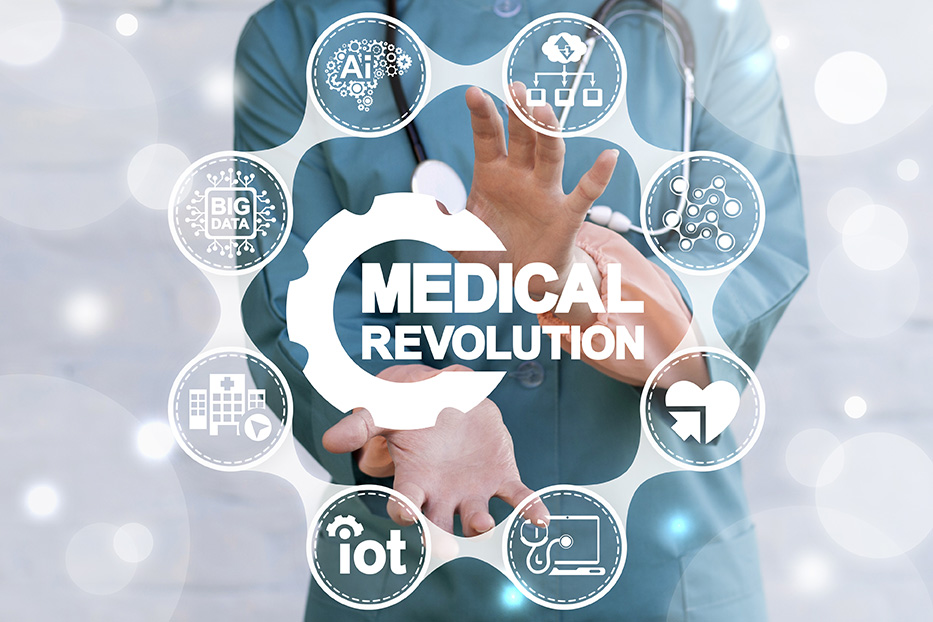In the fast-paced world of healthcare, technology plays a pivotal role in revolutionizing the way we prevent, diagnose, and treat medical conditions. From telemedicine to the use of AI in diagnostics, healthcare is undergoing a profound transformation. In this blog post, we’ll explore technological breakthroughs that are changing the face of healthcare as we know it.
1. Telemedicine and Remote Monitoring
Telemedicine has revolutionized healthcare by providing patients with the ability to consult with their doctors from the comfort of their own homes. But telemedicine isn’t just limited to virtual consultations. Remote monitoring through wearable devices and mobile apps can help doctors continuously track their patient’s health status, especially for those who are managing chronic conditions.
This technology not only improves access to care but also reduces the burden on healthcare facilities. Patient portal software is also an important aspect of telemedicine as it allows patients to access their medical information, schedule appointments, and communicate with their healthcare providers easily.
2. Artificial Intelligence in Diagnostics
Artificial intelligence (AI) is transforming the way medical professionals diagnose and treat diseases. Machine learning algorithms are being used to analyze vast amounts of medical data, including radiological images, genomic information, and patient records.
This has led to faster and more accurate diagnoses, resulting in better patient outcomes. For example, AI has demonstrated exceptional performance in identifying conditions like skin cancer and diabetic retinopathy from images, often rivaling or surpassing human experts.
3. Genomic Medicine
Genomic medicine is at the forefront of personalized healthcare. By examining an individual’s genetic makeup, healthcare providers can tailor treatments to specific genetic factors. This approach has led to more effective treatments, particularly in cancer therapy, where targeted therapies can minimize side effects and improve outcomes.
4. Nanotechnology in Medicine
Nanotechnology involves working with materials at the nanoscale, which opens up new possibilities in healthcare. Researchers are using nanoparticles to deliver drugs to specific cells, which reduces the side effects of treatments.
Additionally, nanotechnology allows for precise imaging and monitoring at the cellular level, contributing to early disease detection and treatment.
5. 3D Printing in Healthcare
The applications of 3D printing in healthcare are nothing short of remarkable. This technology enables the creation of customized medical implants, prosthetics, and even human organs.
It’s revolutionizing the field of surgery by providing surgeons with detailed, patient-specific models for preoperative planning. In fact, 3D printing has been used to create intricate cranial implants, artificial limbs, and even fully functional kidneys.
6. IoT in Healthcare
The Internet of Things (IoT) has penetrated the healthcare sector, connecting medical devices and wearables to the Internet. This connectivity allows for real-time data collection and analysis, facilitating early disease detection and remote patient monitoring.
Patients can track their vital signs, such as heart rate, blood pressure, and glucose levels, and transmit this data to healthcare providers for analysis and feedback.
7. Blockchain for Health Records
Blockchain technology has the potential to revolutionize the management of electronic health records (EHRs). By creating secure, decentralized systems, patients can have greater control over who accesses their medical data. This not only enhances patient privacy but also reduces the risk of data breaches, a growing concern in the digital age.
8. Robotic Surgery
Robotic surgery combines the precision of machines with the expertise of surgeons. These robotic systems offer greater precision and control during surgical procedures, leading to less invasive surgeries and shorter recovery times.
The da Vinci Surgical System, for instance, has been used in numerous procedures, from prostate surgery to cardiac surgery, and has gained a reputation for improving patient outcomes.
9. Medical Virtual Reality (VR) and Augmented Reality (AR)
Virtual reality and augmented reality technologies are not just for gaming and entertainment; they are making waves in healthcare. Medical VR and AR applications are being used for everything from medical training to pain management.
Surgeons can use AR during surgery to superimpose digital information onto the patient’s body, assisting in precise incisions. On the other hand, VR is used to reduce pain and anxiety in patients, particularly in burn units and during physical therapy.
10. Biotechnology and CRISPR-Cas9
Biotechnology is at the heart of genetic editing, with the CRISPR-Cas9 system leading the charge. This technology allows researchers to precisely edit genes, with the potential to treat or prevent genetic diseases.
It’s opening doors to groundbreaking treatments for conditions that were previously considered incurable, such as sickle cell anemia and certain types of inherited blindness.
Conclusion
These technological breakthroughs are not just enhancing the way healthcare is delivered; they are fundamentally reshaping the healthcare landscape. Healthcare facilities management can help with covering essential support services like catering, cleaning, and security. Patients have greater access to care, diagnoses are more accurate, and treatments are more personalized. As technology continues to advance, the future of healthcare promises even more remarkable transformations. It is an exciting time for the healthcare industry, as it embraces these technological breakthroughs to improve the quality of care and the overall patient experience.
